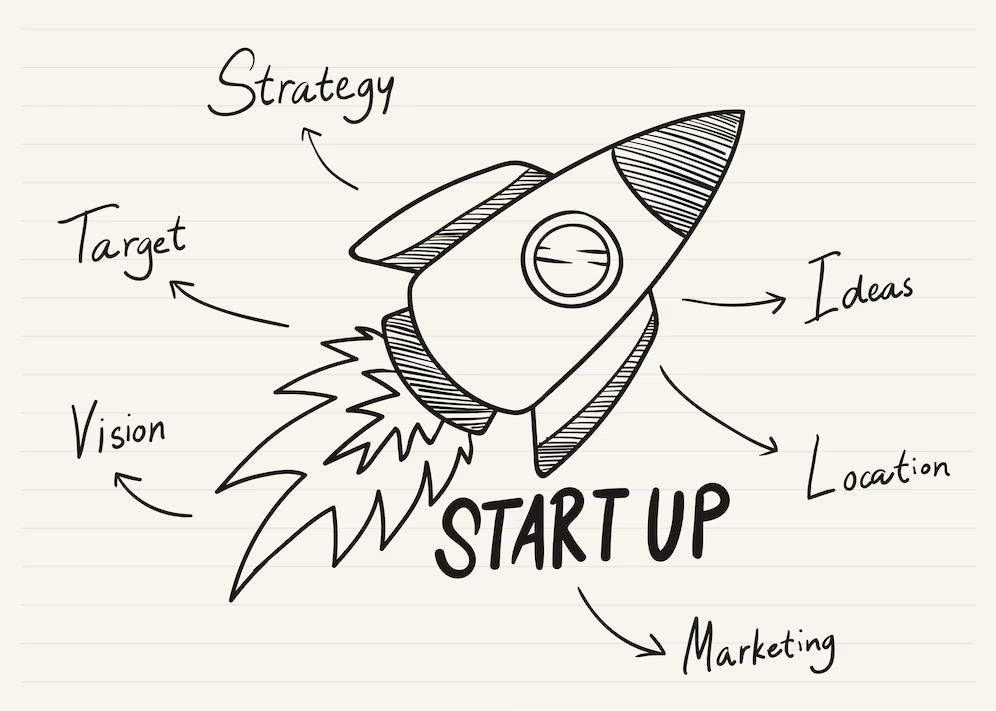Essential Tech Tools for Launching Your Startup
- 0.1 Communication and Collaboration: Building a Cohesive Team
- 0.2 Project Management: Keeping Your Startup on Track
- 0.3 Financial Management: Ensuring Fiscal Responsibility
- 0.4 Marketing and Customer Engagement: Reaching Your Target Audience
- 0.5 Analytics and Data: Driving Informed Decisions
- 0.6 Cybersecurity: Safeguarding Your Intellectual Property
- 1 How to Choose the Right Tech Tools for Your Startup
Starting a new business is an exciting journey with lots of promise, but it also has its own set of challenges. In the digital age we live in now, technology is a key part of the growth of new businesses. Choosing the right tech tools can make all the difference, helping startups deal with complexity, streamline processes, and compete effectively.
In this article, we’ll discuss important technology tools that can contribute to the growth and success of your startup. To increase your chances of success, incorporate these technological solutions into your business plan. To create an effective plan, consider hiring a reputable business plan consultant.
Communication and Collaboration: Building a Cohesive Team
Building a cohesive team is the first step toward launching a successful startup. In today’s remote work environment, communication tools, such as Slack and Microsoft Teams, have become indispensable. These platforms enable real-time messaging, file sharing, and project collaboration, promoting seamless teamwork regardless of location. The ability to instantly share ideas, updates, and feedback is crucial for optimizing efficiency and productivity in a startup setting.
Project Management: Keeping Your Startup on Track
Managing multiple projects and tasks can quickly become overwhelming without the right tools. Project management software, such as Trello and Asana, provide effective solutions for organizing workflows, prioritizing tasks, and monitoring progress. Startups can utilize these tools to delegate responsibilities, establish deadlines, and visualize project timelines. By maintaining a clear understanding of tasks and roles, your startup can stay focused, meet important milestones, and ensure success.
Financial Management: Ensuring Fiscal Responsibility
Another critical aspect of launching a successful startup is managing finances effectively. Utilizing popular accounting software, such as QuickBooks and FreshBooks, can greatly simplify the financial processes of your venture. These tools streamline accounting tasks, track expenses, and generate invaluable reports for making informed financial decisions. By maintaining a clear financial picture, your resources can be allocated in the most effective manner.
Marketing and Customer Engagement: Reaching Your Target Audience
The next step is reaching your target audience and engaging customers. There are digital platforms, such as HubSpot and MailChimp, that offer comprehensive marketing solutions, including email campaigns and customer relationship management (CRM). These tools are valuable for startups as they help in reaching the intended audience, nurturing leads, and analyzing the success of various marketing strategies. By utilizing data-driven insights, your marketing efforts can be tailored to maximize ROI.
Analytics and Data: Driving Informed Decisions
Data is the driving force behind smart decision-making. Analytics tools, such as Google Analytics and Mixpanel, provide valuable insights into user behavior, website performance, and marketing efficiency. Startups can refine their strategies, optimize user experiences, and identify growth opportunities by tracking key performance indicators (KPIs) and analyzing data.
Cybersecurity: Safeguarding Your Intellectual Property
With the increasing prevalence of cybercrime, safeguarding the data and intellectual property of your startup is paramount. Investing in cybersecurity tools, such as antivirus software and virtual private networks (VPNs), can protect your sensitive information from potential breaches. Taking proactive steps to secure your digital assets not only prevents costly data breaches but also safeguards the reputation of your startup.
How to Choose the Right Tech Tools for Your Startup

The right tech tools can be a game-changer for your startup, but selecting them wisely is crucial. Here are key considerations in choosing the best tools for your business needs:
- Assess Your Needs: Begin by identifying the specific needs and goals of your startup. Take into account factors, such as team size, industry, project complexity, and other relevant considerations.
- Scalability: Choose tools that can scale with your startup. This ensures that your technology infrastructure remains relevant as your business grows.
- Integration: Look for tools that seamlessly integrate with each other. This will minimize obstacles in your workflow and enhance overall efficiency.
- Cost-Effectiveness: Consider the cost of each tool and your budget constraints when evaluating options. Some tools offer free versions or trial periods, which can be beneficial for startups to test before committing.
- User-Friendly: Having user-friendly interfaces is crucial because they help your team learn and use the system more quickly. This leads to faster adoption and smoother workflow.
- Support and Updates: Choose a vendor that offers reliable customer support and stays committed to providing regular updates. This ensures that you’ll receive quality assistance whenever needed and timely bug fixes to improve the product.
- Security: Prioritize cybersecurity features to protect your sensitive data and maintain customer trust.
Using the right technology tools can greatly improve the ability of your startup to overcome obstacles and achieve its objectives. These tools can simplify operations, facilitate efficient communication, manage projects, ensure financial stability, improve customer engagement, offer valuable insights through data analysis, and safeguard your digital assets. Thoughtfully selecting these tools will lead to a robust and streamlined technology infrastructure that supports the growth of your startup.

















